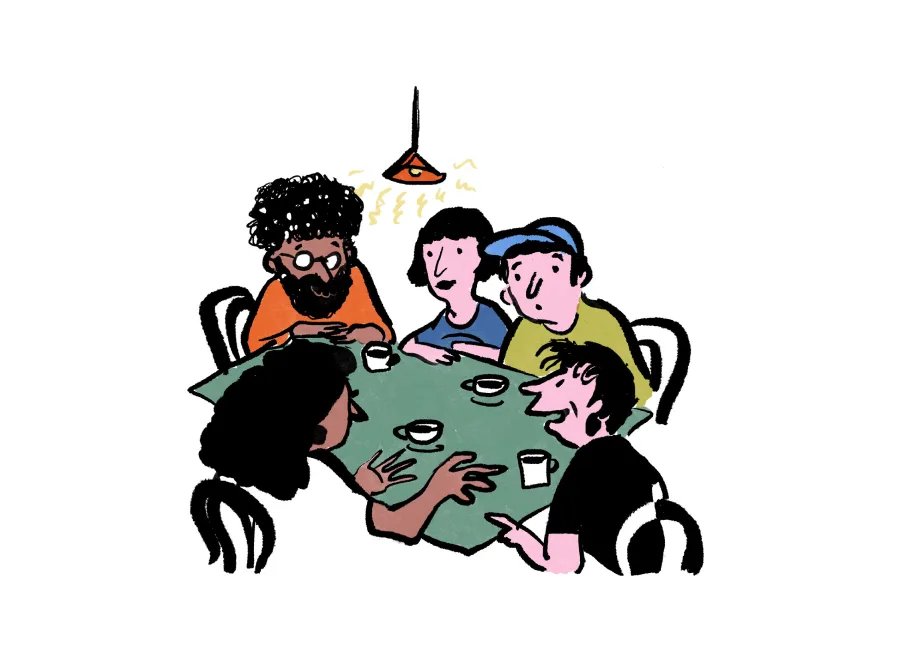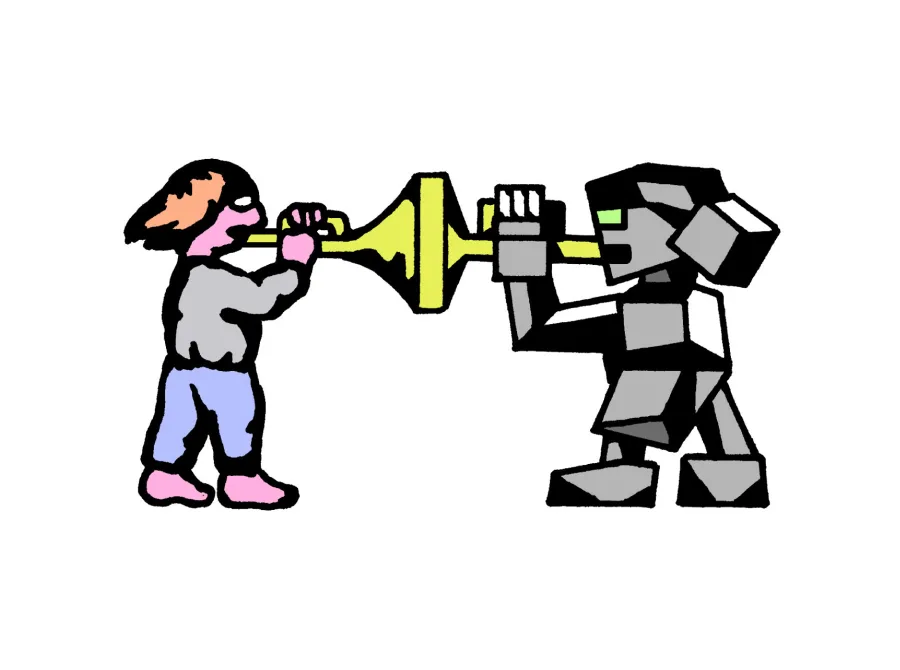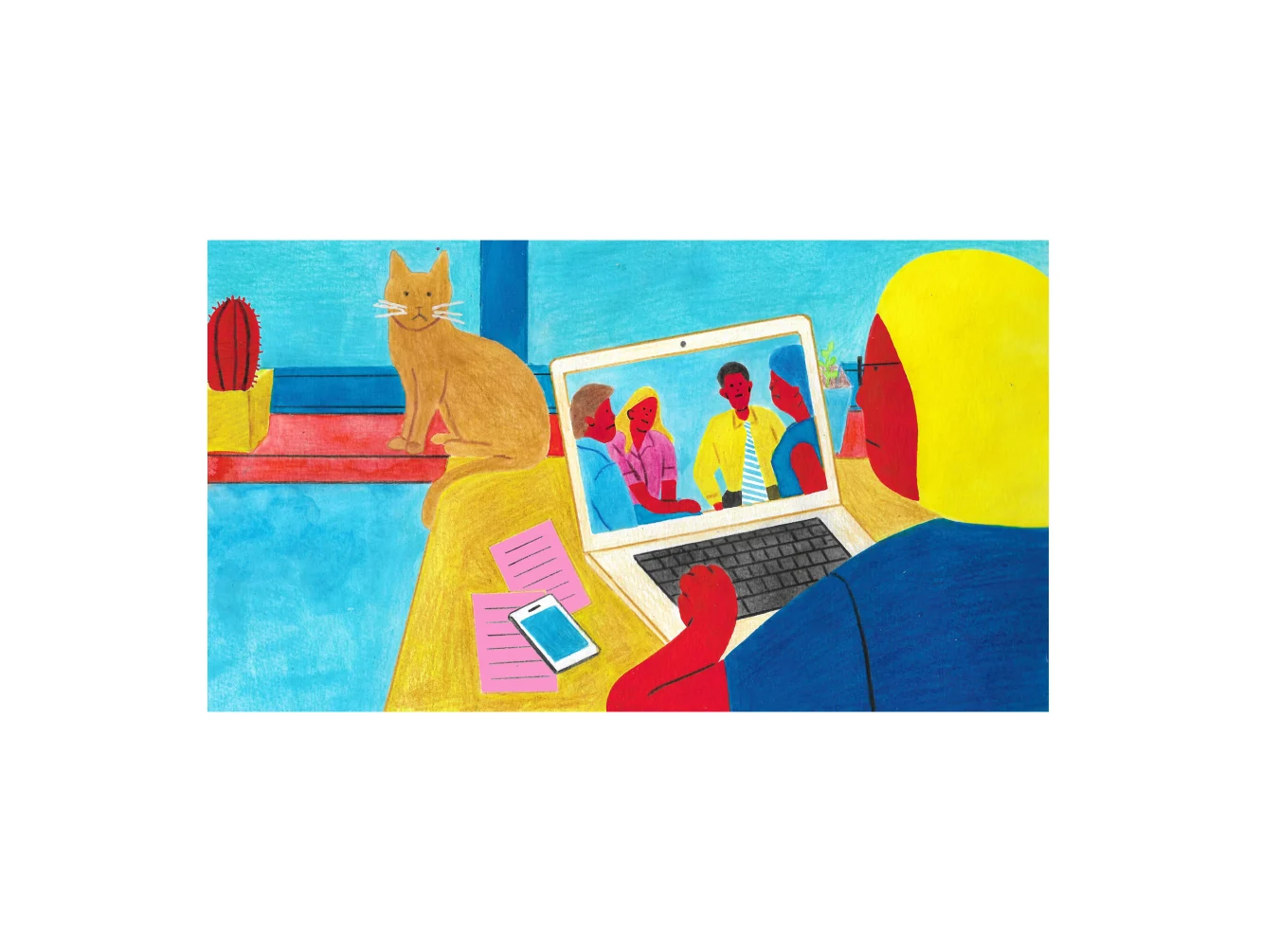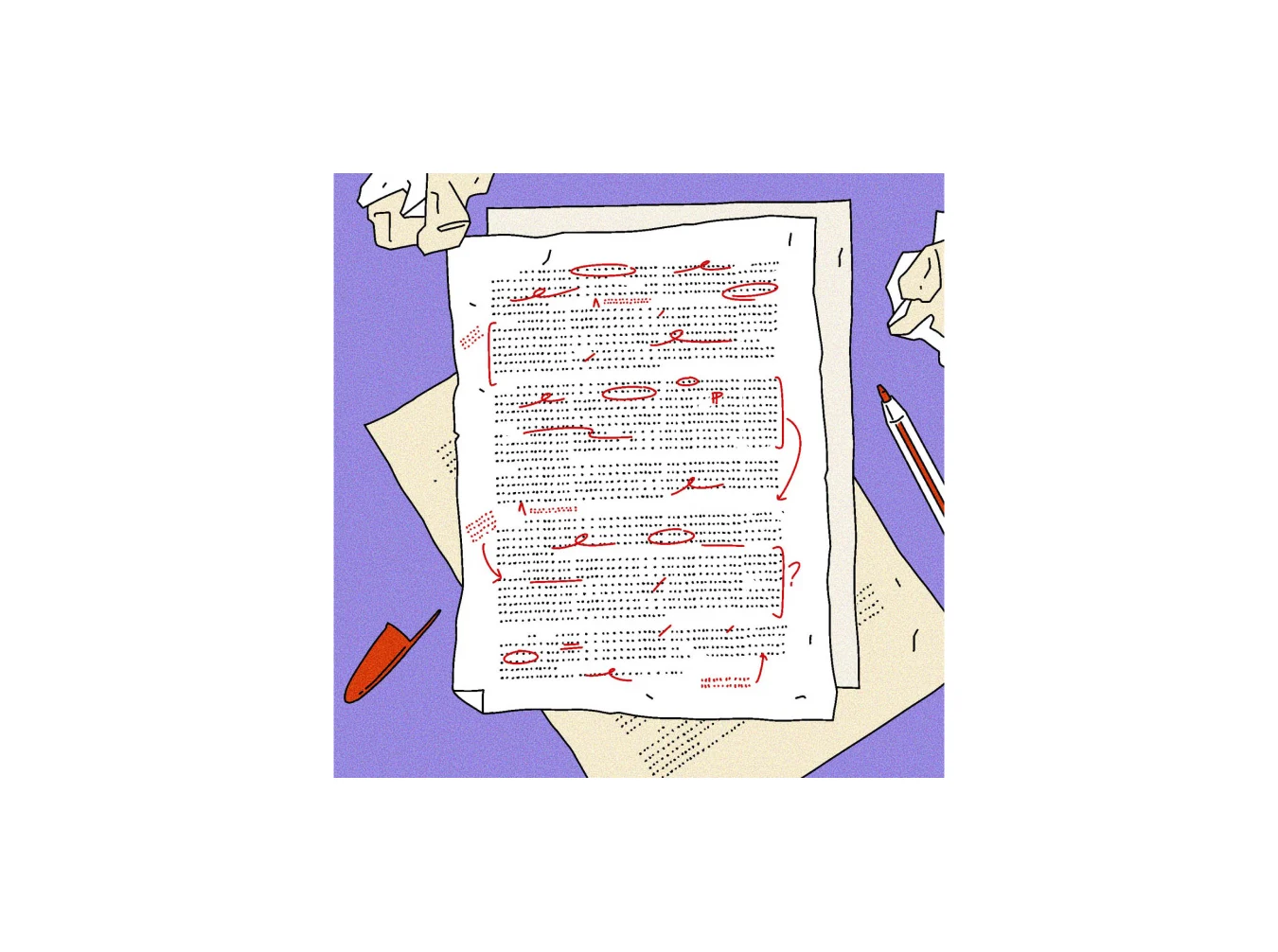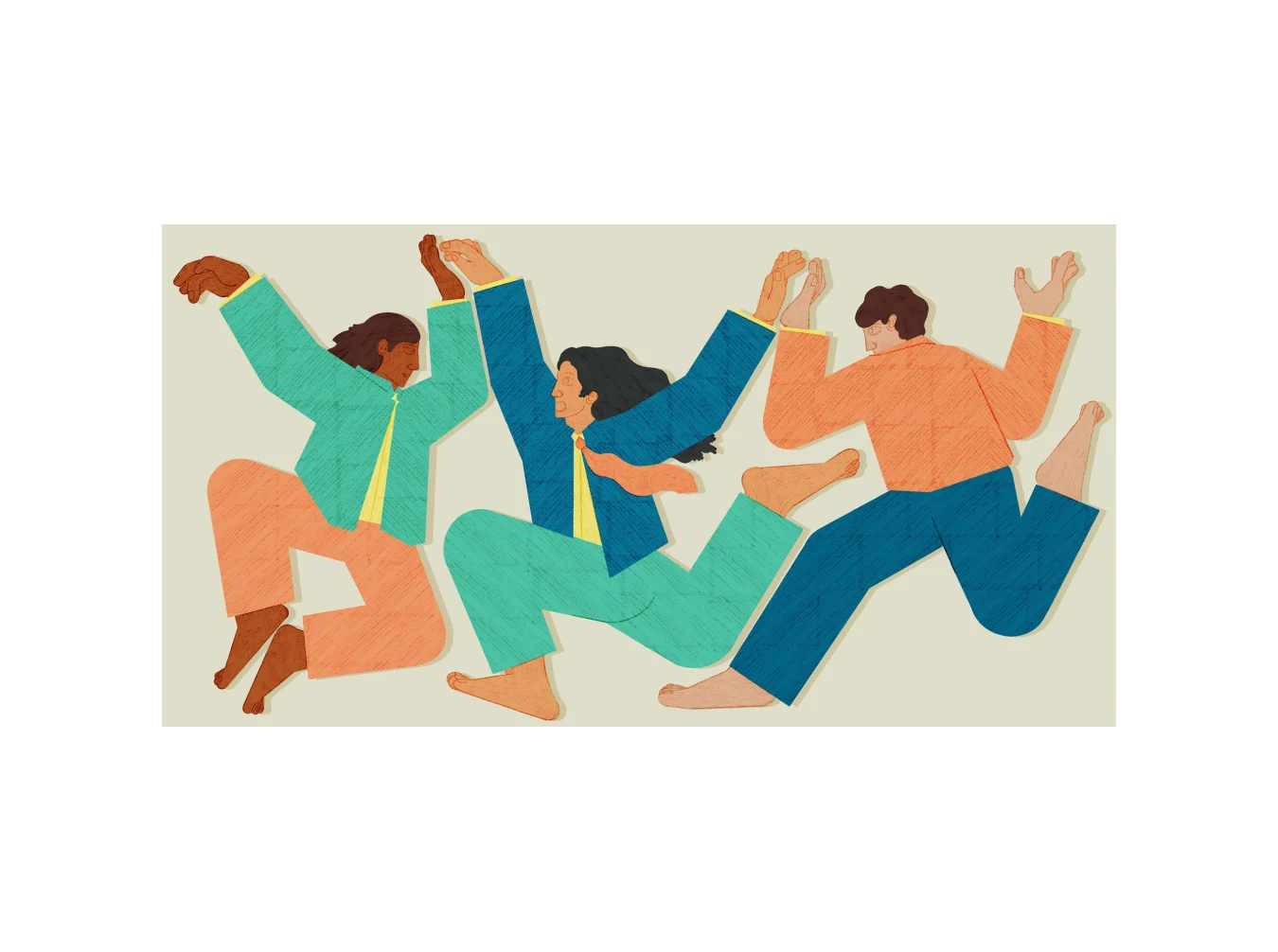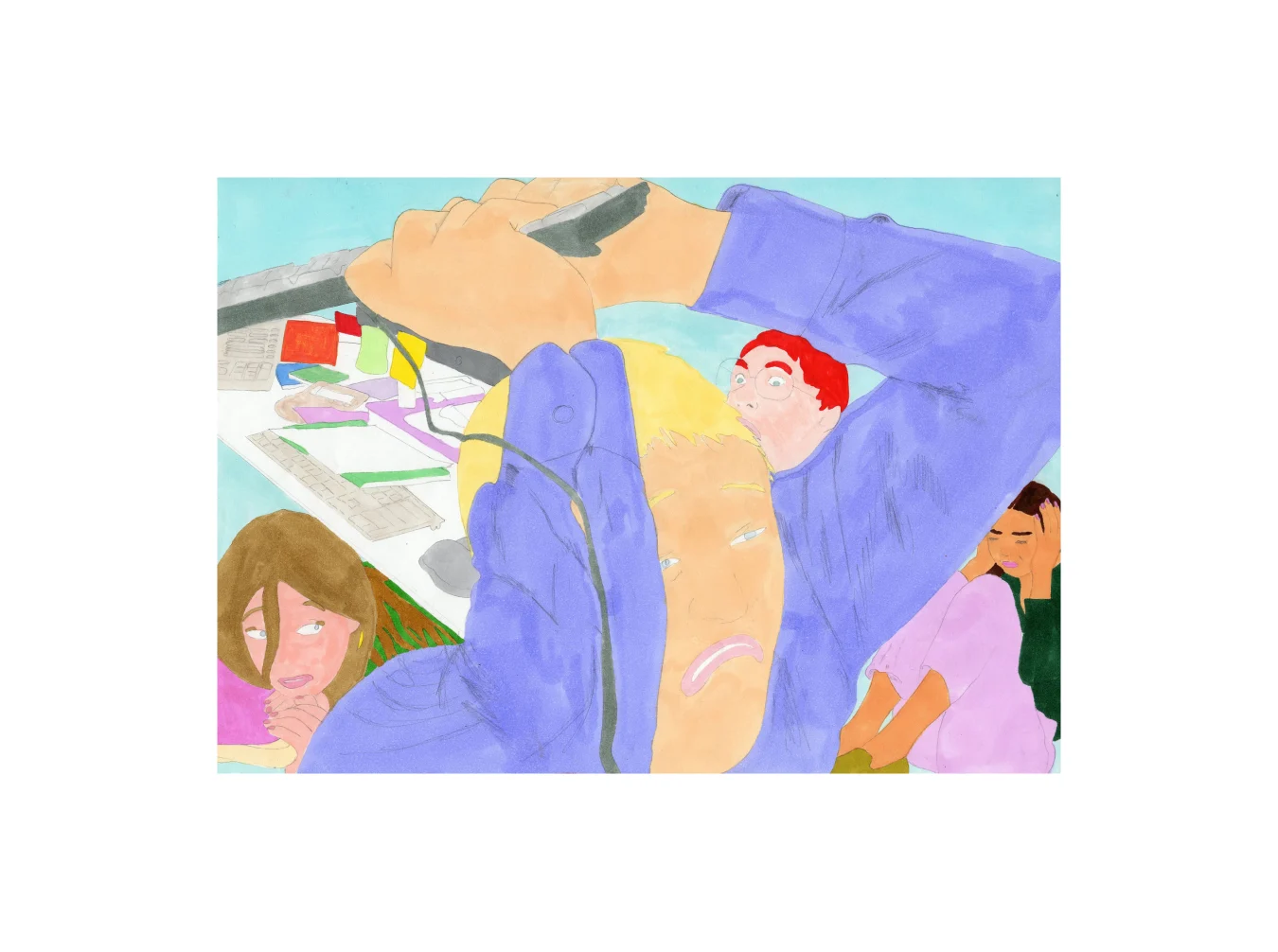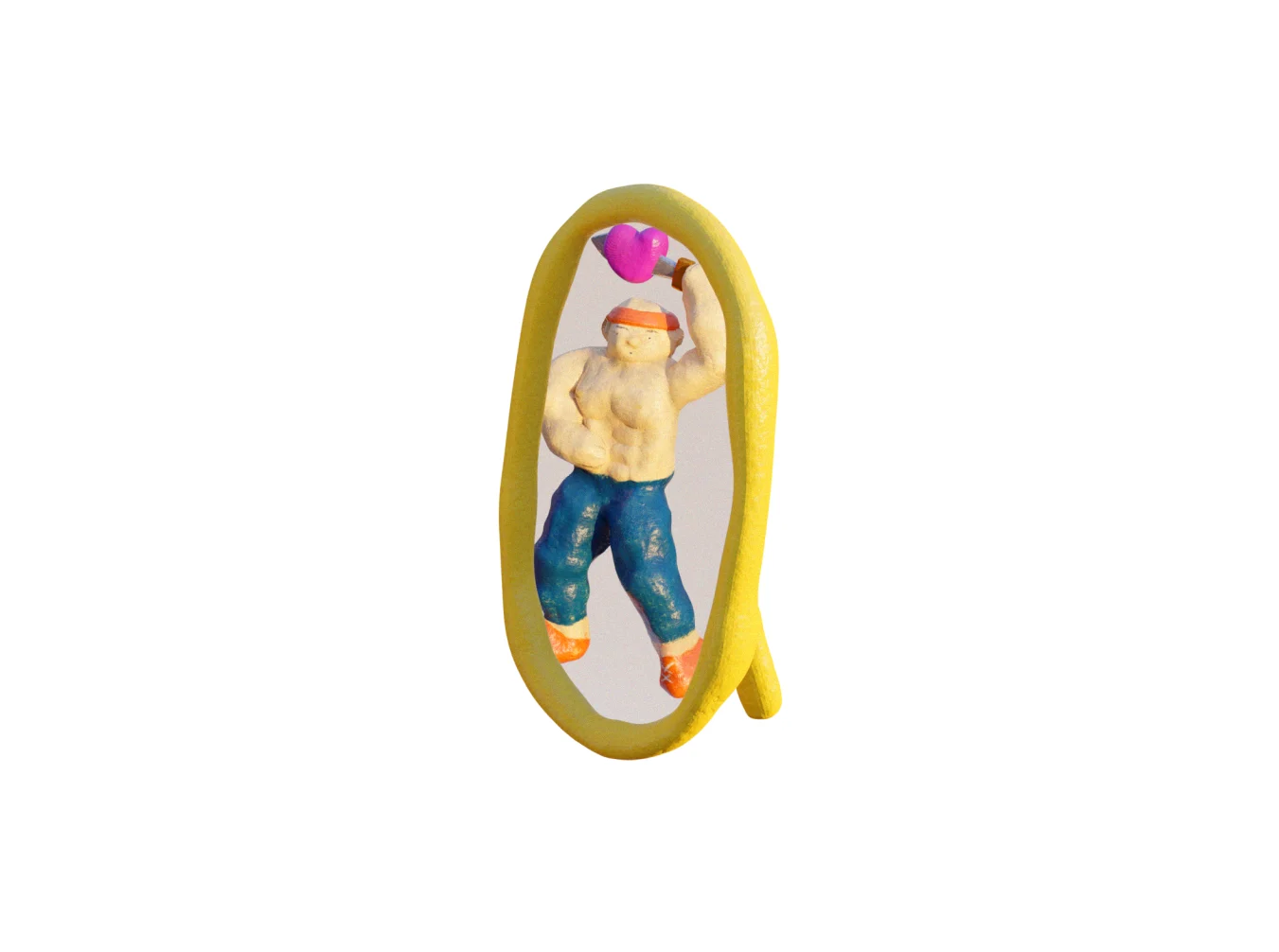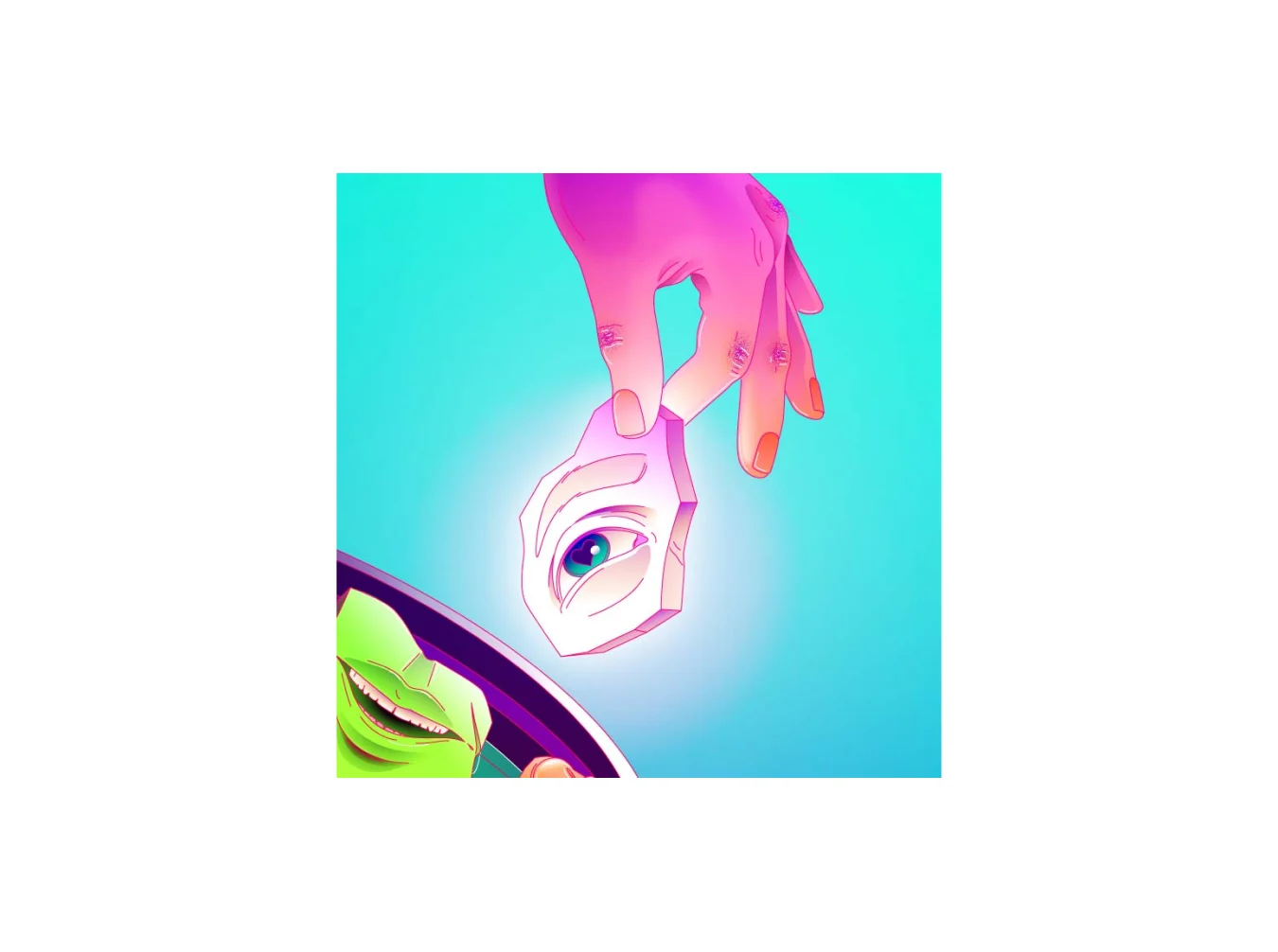
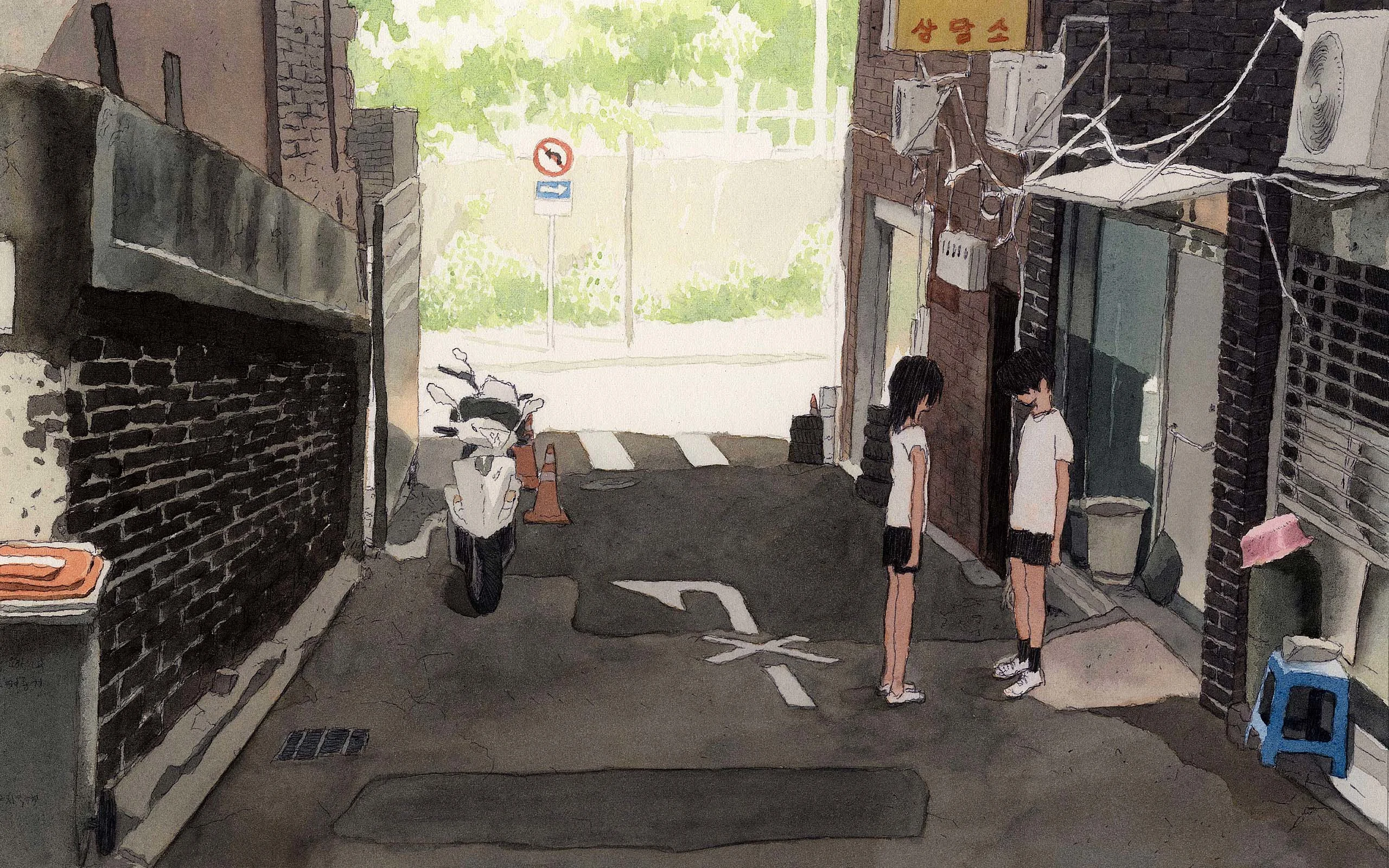
Breaking up is hard to do—and not just when it comes to romance. As writer James Cartwright discovered after the dissolution of not one, but two of the bands he performed with in his youth, the end of a creative collaboration can be just as painful. Here, he speaks to others who have shared the same experience to find out how to move on and learn from creative splits.
Illustrations by Seong Ryul.
Some of the names in this piece have been changed.
In my early-to-mid twenties I was in not one, but two musical outfits that, for a little while, I was convinced might end up being a big deal. The first was a folk nine-piece in which I played the ukulele and sang backing vocals (really really) and the second was a five-piece trad rock band that modeled itself on Neil Young and Crosby, Stills and Nash. I just sang harmonies in that one. That I’m sat here writing about both of these bands in the past tense rather than crooning into your ears from your platform of choice should tell you everything you need to know about what became of them; they split up. Or at least the first one did. I was fired from the second, and thus my career in music was over long before I could even think of it as a “career”. Bummer.
Although I’m pretty sure that a life of excess on the road wouldn’t have been for me, it took me a long time to get over the idea that I wasn’t going to be a musician of sorts. I grew up around music, and a lot of the people I used to perform with as a kid have gone on to make successful careers as musicians. In addition, the circumstances under which both bands broke up were awkward at best, acrimonious at worst. I’d gone into both with a group of friends that I was expecting to be long-term collaborators and left them with some broken dreams and a sense of distrust for the music industry as a whole. Both bands had, at various stages, received some attention from record labels and we’d recorded material with some exciting producers, but it seemed to me that as soon as these outside forces got involved, everything went to shit.
Though she works in a different industry, Helen felt the same when her company split in the early 2010s. For the best part of a decade, she and her co-founders had built up a successful business that straddled two sides of its industry, producing quality content in-house that brought in a sizable advertising revenue, simultaneously servicing a long list of increasingly high-profile clients. Success begat success, but the business needed an injection of cash to grow.
We lost some very precious friendships. For each of us, in different ways and to differing degrees, it was absolutely devastating.
“One side of our business took investment,” she says, “without which I don’t believe it would have failed, but it certainly would not have grown so quickly. We needed support with cash flow, but were naive in giving up too much of our company in order to facilitate it.” When outside money started coming in, things began to get complicated.
At first, the investment simply exacerbated existing tensions in the company. Both sides of the business had grown up working with a huge amount of creative freedom, but the client-facing side had to have more checks and balances and, crucially, clear processes to ensure that clients were getting what they were paying for. This proved a longstanding bone of contention between the two sides of the business.
“We’d been so used to being our own clients,” says Helen. “We tried to be professional – meeting deadlines, answering our own briefs – but everything was on our own terms. Switching from this mindset to working for clients was a huge shift that principally required organization. To us, that meant the introduction of project management. It turned out that while most of us welcomed this as a sign of ‘growing up’, others resented it and felt more attached to their previous ways of working. So in some ways the business was already split into two opposing mindsets.

“We all fell out quite quickly as it became clear that one side of the business would need to support the other, facilitated by its evolving ways of working. That could have been fine, if the other side of the business could have accepted what was happening, but they were somehow blind to it, happy to take the money but unhappy to accept the way things were growing.”
To complicate things further, their outside investor now owned a controlling stake in the business and began to throw their weight around when decisions were made that they didn’t like. In the end there was too much resentment to make the company work in its existing state. “Our side of our business chose to go it alone,” says Helen. “We decided this unilaterally, but our hand was very much forced into doing so.”
In the late 1980s Nick True got one step closer to musical stardom than I ever did with his band Friends of Gavin, “five mates from school who were into punk and reggae” and had learned to play their instruments together. After years of touring the UK playing to empty venues, their schoolboy outfit had transformed into something bigger, slicker, and they were finally starting to taste a bit of commercial success. A double-page feature in “NME,” support from a pre-fame Smiths at their first London show and a tour with R.E.M – then one of the biggest bands in the world – all suggested that Nick and his bandmates were on the cusp of something big.

“We had the head of A&R at CBS putting us in the studio and negotiating a five-album deal with our manager,” Nick says. But the dream ended “with our lead singer getting married and the head of A&R getting sacked.
Twenty years later, as Nick sees it, Friends of Gavin’s problems were twofold. Like Helen and her divided company, Nick and his bandmates had very different expectations of what they wanted from their band. Nick wanted to go all the way, but his lead singer had other plans. Youthful naivety also had a part to play: they were all “too immature and too stoned to realize the opportunity we had.”
When they split, Nick and his remaining bandmates joined punk band Spizz Energie, assuming they’d be able to recreate their past successes. “I thought, no problem, we’ll just do something else, but I found out that momentum is everything, and when it stops, it stops.”

In the immediate aftermath of the breakup, Nick fell out of love both with music, and his old friend. “I was devastated. I was pissed off that just when we were on the cusp of making it, Billy got married and put a stop to it all,” he says. “The marriage only lasted a little while, and I thought we were going to be huge stars.”
In a band, it's almost expected that a break-up will be openly acrimonious, but in a business, there are employees to consider, and the drama has to be reined in. For Helen, it was important that the break-up process didn’t make the company an unpleasant place for her employees to work, even while tensions among the management were fraying. “We tried to communicate with our staff as much as possible, so that they could understand what was happening,” she says. “It was a very unpleasant time, and we just wanted to be honest and transparent, but without turning our descriptions of events into mud-slinging of any kind.”
The process wasn’t an easy one, but Helen thinks she and her business partners managed to keep office politics to a minimum. “My recollection is that our staff handled it really well, but the truth is that it’s impossible to say. I think the main thing was that although there had been some serious fallings out, we insulated them from it as best we could, and so they were able to understand that it was serious, but not wholly unpleasant.”
While dividing up the business was a relatively clean process, the personal side of the split took longer to deal with. It’s a myth, after all, that business and personal relationships can be separated. Friends decide to form bands; people that work together become friends. For Helen, it was the breakdown of friendships that really stung. “We lost some very precious friendships. For each of us in different ways and to differing degrees it was absolutely devastating. Mixing business with friendship is extremely difficult.”

In the intervening years, Helen has found it hard to look at the output of her old company with objectivity. She can’t look at their work without seeing missed opportunities and reliving the hurt of the break-up. “I’m really proud of my part in the journey of that business, and of the projects within it to which I contributed,” she says. “But I feel numb to everything that came after our departure.”
Now that these break-ups are at least a decade in the past, Nick and Helen have had some time to process and reflect on the fallout. Naturally, it’s had an impact on the way they do things now. Nick’s approaching music with a new frame of mind. After a 20-year break from the music industry, during which he founded a marketing business that’s “been my art” while songwriting took a backseat, he has a new band, The Horn, and more of a game plan than before.
“It’s totally different to before,” he says. “Every member of The Horn is an amazing musician and we’re all very focussed. We’re on a mission to play the Hollywood Bowl by 2024.”
For Helen, the lessons were immediately put into practice when establishing the new business. “We’ve been more open and honest with each other since day one. We’ve never allowed anything to fester. We’ve documented our decision making. We’ve been more cautious, and we’ve been tighter-knit as a team because we have shared battle scars! If we’d know then what we know now we’d have worked harder to discuss and agree on a shared, documented, realistic vision for the company.”
And if she had to go through it all again, what advice would she give to her younger self? “I would tell her to get a therapist and talk things through with them. I would tell her that other things in her life will be much more important than work, and to try and do her very best to compartmentalize what’s happening to her.”





